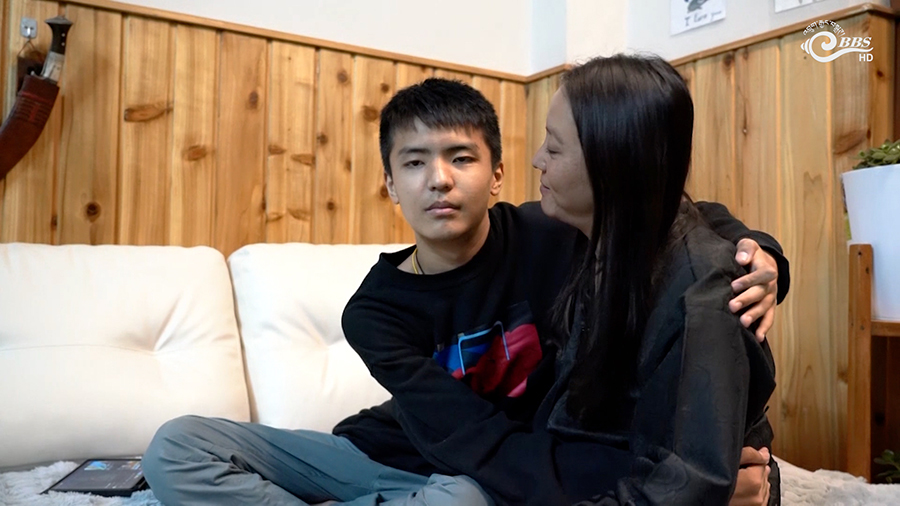 They may look like everyone else, but for people with intellectual disabilities, everyday life can be a constant battle against misunderstanding, judgment, and exclusion. From autism and mental health challenges to sensory processing disorders, the challenges are real, even if they are not visible. Now, parents and advocacy groups are pushing for voluntary identification systems to help raise awareness, reduce stigma, and make public spaces more inclusive.
They may look like everyone else, but for people with intellectual disabilities, everyday life can be a constant battle against misunderstanding, judgment, and exclusion. From autism and mental health challenges to sensory processing disorders, the challenges are real, even if they are not visible. Now, parents and advocacy groups are pushing for voluntary identification systems to help raise awareness, reduce stigma, and make public spaces more inclusive.
Intellectual disabilities such as autism, attention deficit hyperactivity disorder ADHD, mental health conditions, and sensory disorders affect many people across Bhutan and beyond. But unlike physical impairments, these conditions are not immediately noticeable. This lack of visibility can cause everyday challenges to be met with confusion or even hostility from the public.
Wangmo is the mother of 14-year-old Nima, who has autism and ADHD. Nima is a bright and articulate boy, often able to express his thoughts clearly. But Wangmo remembers how, as a young child, he would cry for hours when things didn’t go his way. While those episodes have reduced over time, Nima still experiences intense emotional responses swinging between anxiety and overwhelming joy. In public, when he displays behaviours common in children with autism, Wangmo says people often stare or react with judgment.
She says people usually assume it is a bad parenting rather than recognising it as a disability.
Wangmo said, “If in case I do not accompany my son and he jumps and happens to hit someone who is of his age, I fear that the other person might do something because the other person will not see him as a person with disabilities. He is physically fit. So, there is a chance of such a misunderstanding.”
Wangmo says the lack of visible cues means her son is often misunderstood and unfairly judged. She said it could be eased with simple tools like an identification card.
She said, “I don’t see identification as discrimination because prevention is better than cure. With identification, people are more likely to understand that the child may behave differently. And for us, it means we don’t have to keep explaining to everyone that our child has a disability, especially when we hear negative comments. It’s painful. Should I explain my child’s condition to one or two people, or to 700,000 to 800,000 people in Bhutan?”
 The Civil Society Organisations working with people living with disabilities say formal identification might expose them to further stigma. Though there is a need, they said it should be optional.
The Civil Society Organisations working with people living with disabilities say formal identification might expose them to further stigma. Though there is a need, they said it should be optional.
One such global initiative is the Hidden Disabilities Sunflower. It is a discreet sign to show that the person has a hidden disability. First introduced in the UK, it is now recognised in several countries.
“The Disabled People’s Organisation has also submitted a proposal to the Prime Minister’s Office about establishing a national screening and certification system. Having those screening and certification in place would further facilitate the government, the CSOs and other stakeholders or counterparts to come up with innovative solutions and social protection mechanisms for persons with disability to empower and to make Bhutan a more inclusive society now,” saidKinley Wangchuk, the executive director of the Disabled People’s Organisation.
Draktsho Vocational Training Centre for Special Children and Youth says its students carry an identification card that includes their name and type of disability. The card helps them receive priority and appropriate support when needed.
“There are parents who don’t come forward or maybe even don’t bring their child to public gatherings. It’s because I think society is actually a very big barrier. So that’s why having the identification is an essential phenomenon,” said Deki Zam, the executive director of Draktsho.
“I feel that it should be kept optional because not everyone wants to be identified. And as well as like, in future if this goes through, then parents might take advantage of it, so the government has due diligence to identify, to certify those who have intellectual disabilities,” said Sumitra Darjee, a social worker with the Ability Bhutan Society.
Just a few weeks ago, CNN reported that the police in the US opened fire on an autistic teenager who was also non-verbal and with intellectual disabilities as he was carrying a kitchen knife. There was no indication that the police were aware of the boy’s condition.
Wangmo, who is herself a volunteer social worker says she fears that without greater awareness and visible cues, misunderstandings could lead to dangerous consequences even here in Bhutan. She said parents are not asking for pity or special treatment. What they want is simple: understanding, empathy, and the choice to use tools that make their children’s lives a little easier.
For people with hidden disabilities, the struggle is not just with their condition but with a world that refuses to see it.
Samten Dolkar
Edited by Tandin Phuntsho








